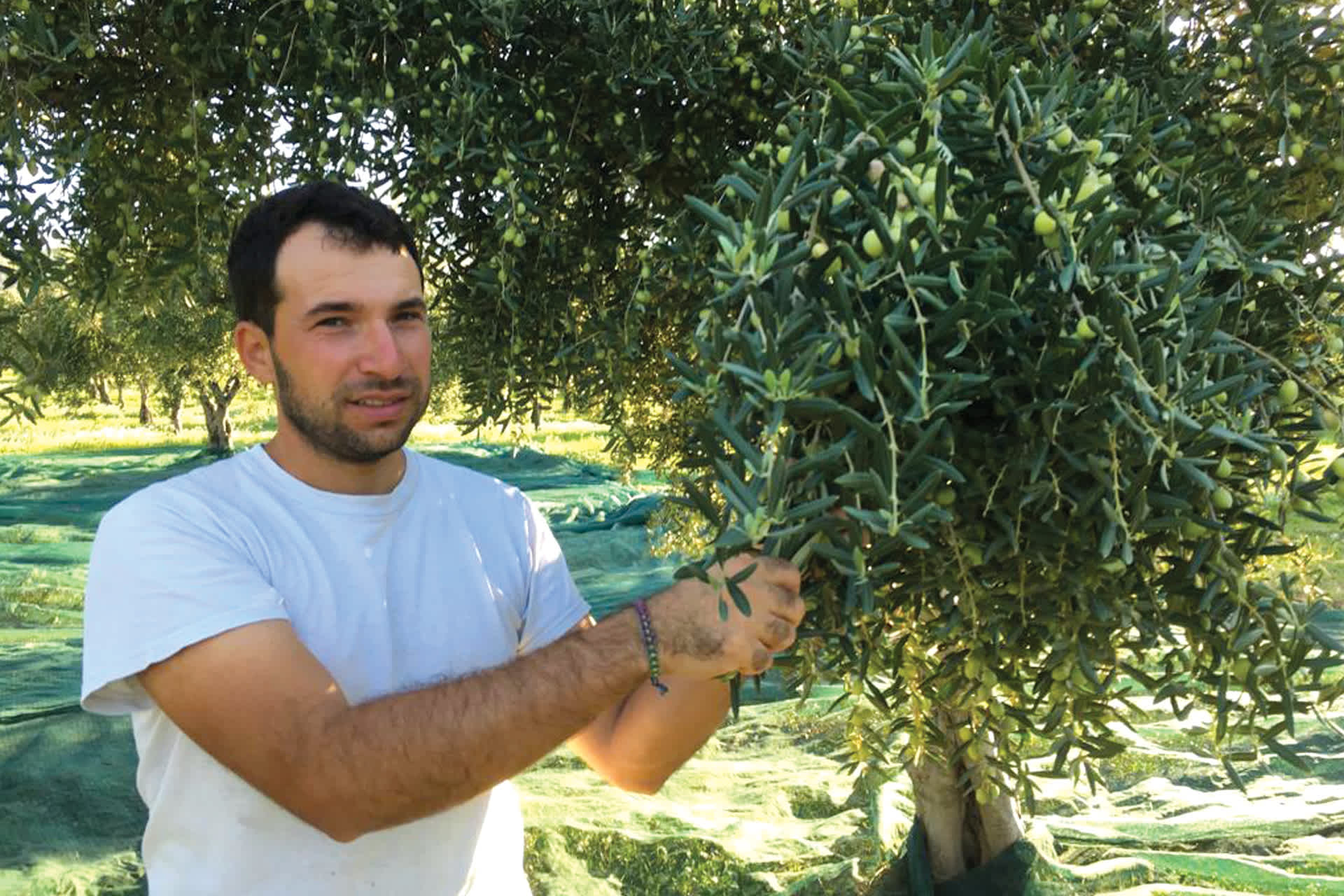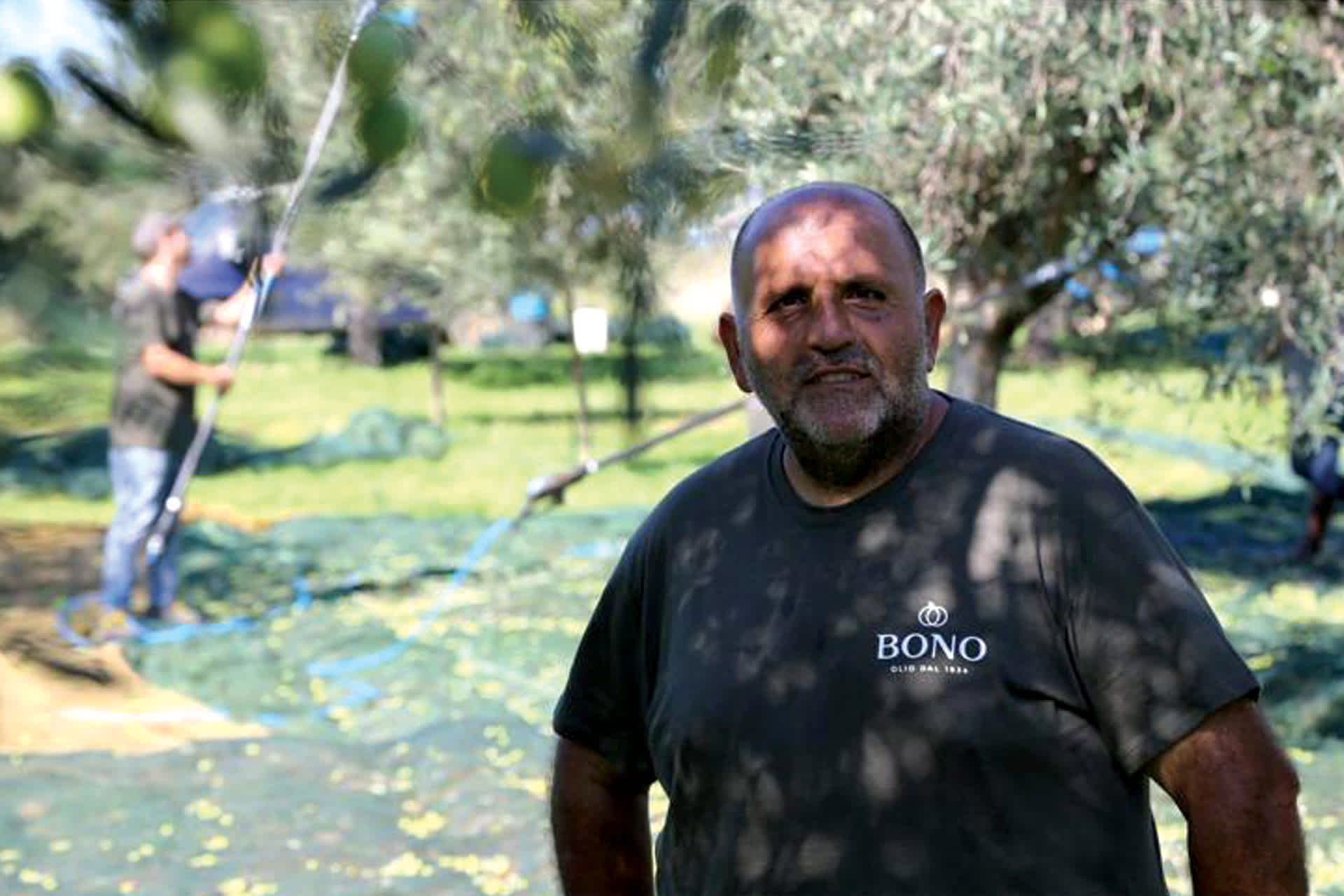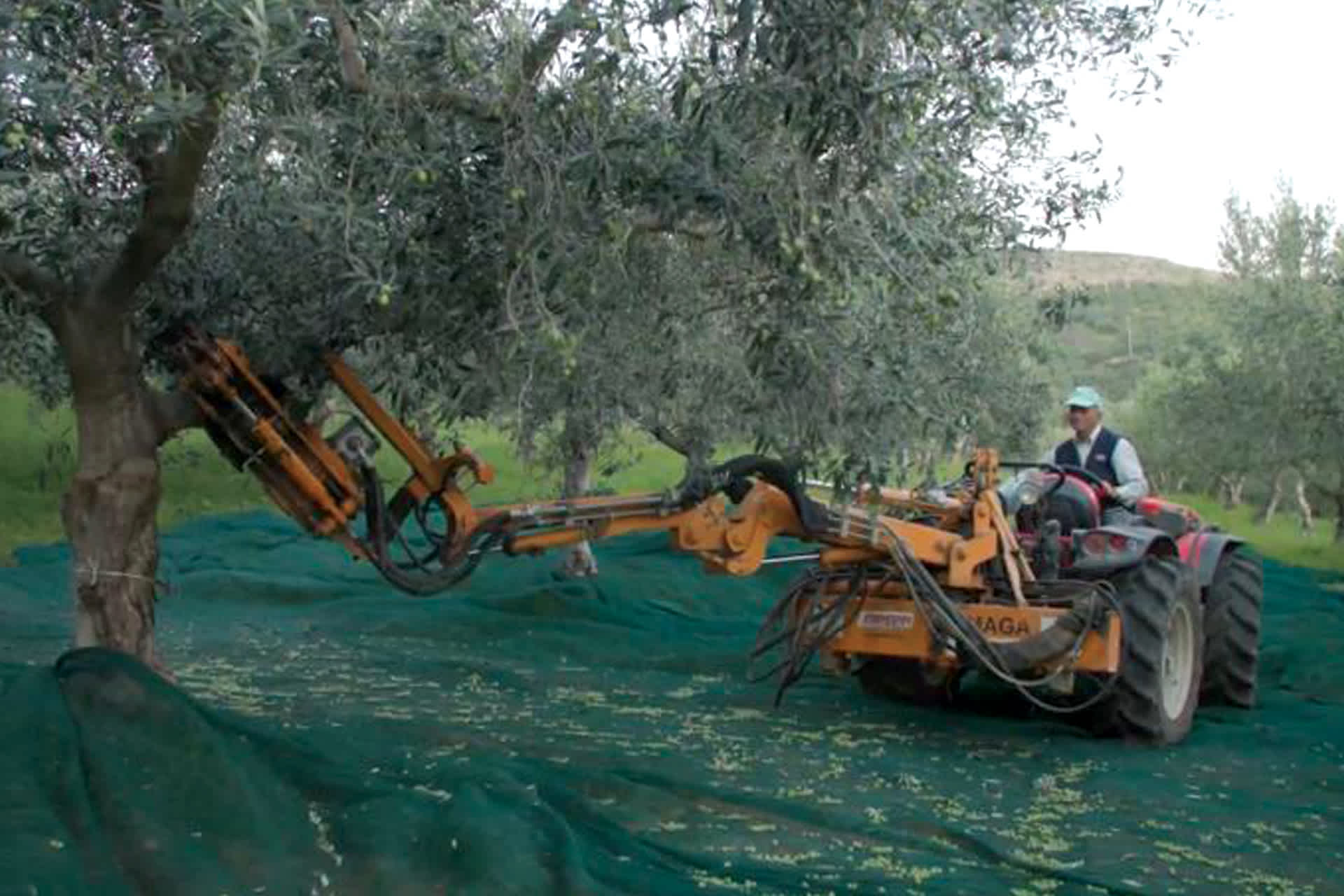Liquid Gold

Making olive oil, the liquid gold of the food world, takes a lot of care, attention, and hard work. I had the opportunity to experience the process firsthand, at the Bono olive oil farm and factory, on the Italian island of Sicily. I was fascinated by the wide range of people who bring the oil to life, from the farmers who work the land to the people who keep the groves and the factory up and running.
The Bono family founded its olive oil company in Sciacca, a town in western Sicily, in 1934. Now, nearly 100 years and many generations later, Salvatore Bono runs the company. His job is important, and fall is a crucial time for the business. “We work all year for this moment,” he told me, explaining that hundreds of farmers come together to deliver olives to factories after picking the fruit from trees in the groves. “It’s truly a special time throughout Sicily.”

The magic begins in the groves—lush, green areas of land that are filled with olive trees. Here, farmers harvest and gather the fruit. There are a few different methods that can be used to do this. “While some farmers use modern machinery during the harvest, I still believe picking manually is the best way,” farmer Alberto Ciaccio says. According to Restaurant Business, a single tree produces about 33 to 44 pounds of olives each year, and worldwide, about nine million metric tons of olives are used to make olive oil annually.
In the fall, when Sicilian olives reach peak ripeness, they’re brought to the Bono facility in Sciacca, to be weighed, cleaned, and turned into oil. This process must be done quickly because the oil is meant to be consumed as close to the harvest date as possible, “when the flavor is most profound, intense, and powerful,” Bono says. It’s useful to know about four types of olive oil: extra-virgin, virgin, pure, and refined (often for commercial use). Extra-virgin olive oil—or EVOO—is the most prized.
The farmers are proud of their hard work. For many of them, it’s a job that has been part of their family for decades. “My olive farm has been in my family for more than 70 years,” Nino Bruno Florio says. When he was a little boy, he helped his father during the harvest and always anticipated a big party when the job was finished in December. “Now I have passed this tradition on to my children.”

While most of the world’s olive oil is produced in the Mediterranean Basin—which includes Greece, Italy, and Spain—much of it is exported to other countries. Olive oil is a big business. In 2021, the global olive oil market topped $13 billion, according to some estimates. In Italy, olive oil production is tightly controlled by the government to “ensure quality, high standards, and respect for a tradition that has lasted more than 2,500 years in Sicily,” farmer Santo Bono says.
Once the olives are cleaned and the leaves are taken off, the fruit is ground into a paste. Then a machine called a centrifuge separates oil from water. Finally, the olive oil is packaged in a factory, where it’s sealed in either a glass bottle or a metal tin. A label is added as a finishing touch. The olive oil is then sent to stores around the world.
You don’t need a family connection to get into the olive oil business. If you are interested in this specialized part of the food world and want to get involved, start by networking with people in the industry. Visit farms. I went to one in Italy, but you can find farms in California and other parts of the United States. Find out if there are any open positions at company headquarters or in the groves, where it all begins. And definitely become familiar with different types of olive oils. There may even be a specialty store near you, where you can sample several varieties and find the liquid gold that suits your taste.

